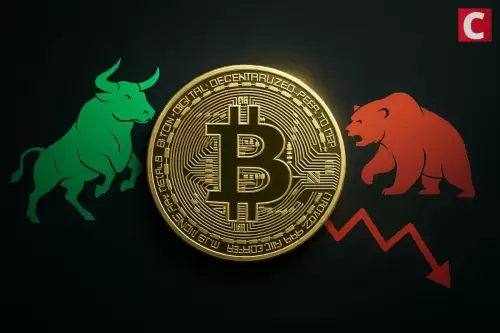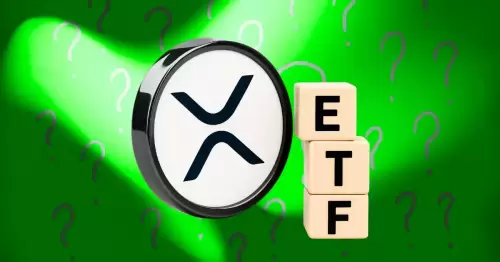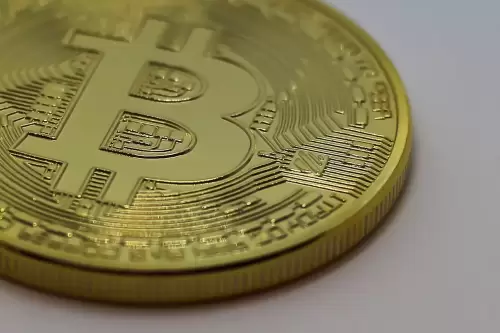 |
|
 |
|
 |
|
 |
|
 |
|
 |
|
 |
|
 |
|
 |
|
 |
|
 |
|
 |
|
 |
|
 |
|
 |
|
Cryptocurrency News Articles
Arizona's Bitcoin Ambitions: A Reserve Bill Rollercoaster
Jun 20, 2025 at 09:25 am
Arizona's journey with Bitcoin reserve bills is a wild ride. From initial rejections to revived hopes, the state's exploration of digital asset integration continues to fascinate.

Arizona's been playing a high-stakes game with Bitcoin, and the 'Arizona, Bitcoin, Reserve bill' saga is far from over. Let's dive into the latest developments.
The HB2324 Revival: A Second Chance for Bitcoin in Arizona
House Bill 2324 (HB2324), aiming to create a state-managed fund for Bitcoin and other digital assets seized through criminal forfeiture, has been resurrected after initially stalling. After being revived in mid-June, it's back in the House for a final vote. This bill proposes a Bitcoin and Digital Assets Reserve Fund under the state treasurer’s watch, outlining options for managing seized digital assets, from storage in approved wallets to selling them on licensed exchanges.
If HB2324 passes, the first $300,000 from seized digital assets goes to the Attorney General's Office. After that, the split is 50% to the Attorney General, 25% to the state general fund, and 25% to the new Bitcoin and Digital Assets Reserve Fund. This bill isn't just about holding crypto; it's about expanding Arizona’s forfeiture laws to include digital assets.
A Rocky Road: Previous Attempts and Vetoes
Arizona's path to Bitcoin integration hasn't been smooth. While Governor Hobbs signed HB2749 into law on May 7, allowing the state to keep unclaimed crypto and establish a Bitcoin reserve fund using airdrops and staking rewards, she also vetoed Senate Bill 1025 and SB 1373. Her concerns revolved around the volatility of cryptocurrency markets and the prudence of investing general fund dollars in such assets.
MicroStrategy's Bold Move: A Lesson in Institutional Bitcoin Adoption
While Arizona lawmakers debate Bitcoin's role in state finances, MicroStrategy offers a compelling case study. The company transformed itself into a major Bitcoin holder through aggressive capital-raising strategies, including equity issuance and debt financing. While MicroStrategy's approach carries risks, it has also positioned the company as a leader in institutional Bitcoin adoption.
The Big Picture: Why This Matters
Arizona's Bitcoin journey mirrors a broader trend of exploring digital assets in government and corporate finance. While concerns about volatility and regulatory uncertainty persist, the potential benefits of diversifying reserves and embracing financial innovation are hard to ignore. The Ukraine's Verkhovna Rada is considering a bill to add Bitcoin to its gold-and-foreign-currency reserves. It highlights a growing interest in Bitcoin as a reserve asset, potentially offering diversification and a backup settlement rail.
My Two Satoshis
It's fascinating to watch Arizona navigate the world of Bitcoin. The HB2324 revival shows there's still appetite for digital asset integration. If the bill passes, Arizona could set a precedent for other states looking to manage seized crypto assets. Also MicroStrategy’s Bitcoin-focused strategy stands in stark contrast to other companies that have adopted cryptocurrency in more conservative ways.
The 'Arizona, Bitcoin, Reserve bill' story is a reminder that innovation often comes with challenges. Whether Arizona becomes a Bitcoin pioneer or takes a more cautious approach remains to be seen. One thing's for sure: the conversation is just getting started.
So, what's next for Arizona and Bitcoin? Only time will tell, but I'm grabbing my popcorn and watching the show! Keep your eyes peeled, folks; this could get interesting.
Disclaimer:info@kdj.com
The information provided is not trading advice. kdj.com does not assume any responsibility for any investments made based on the information provided in this article. Cryptocurrencies are highly volatile and it is highly recommended that you invest with caution after thorough research!
If you believe that the content used on this website infringes your copyright, please contact us immediately (info@kdj.com) and we will delete it promptly.





























































